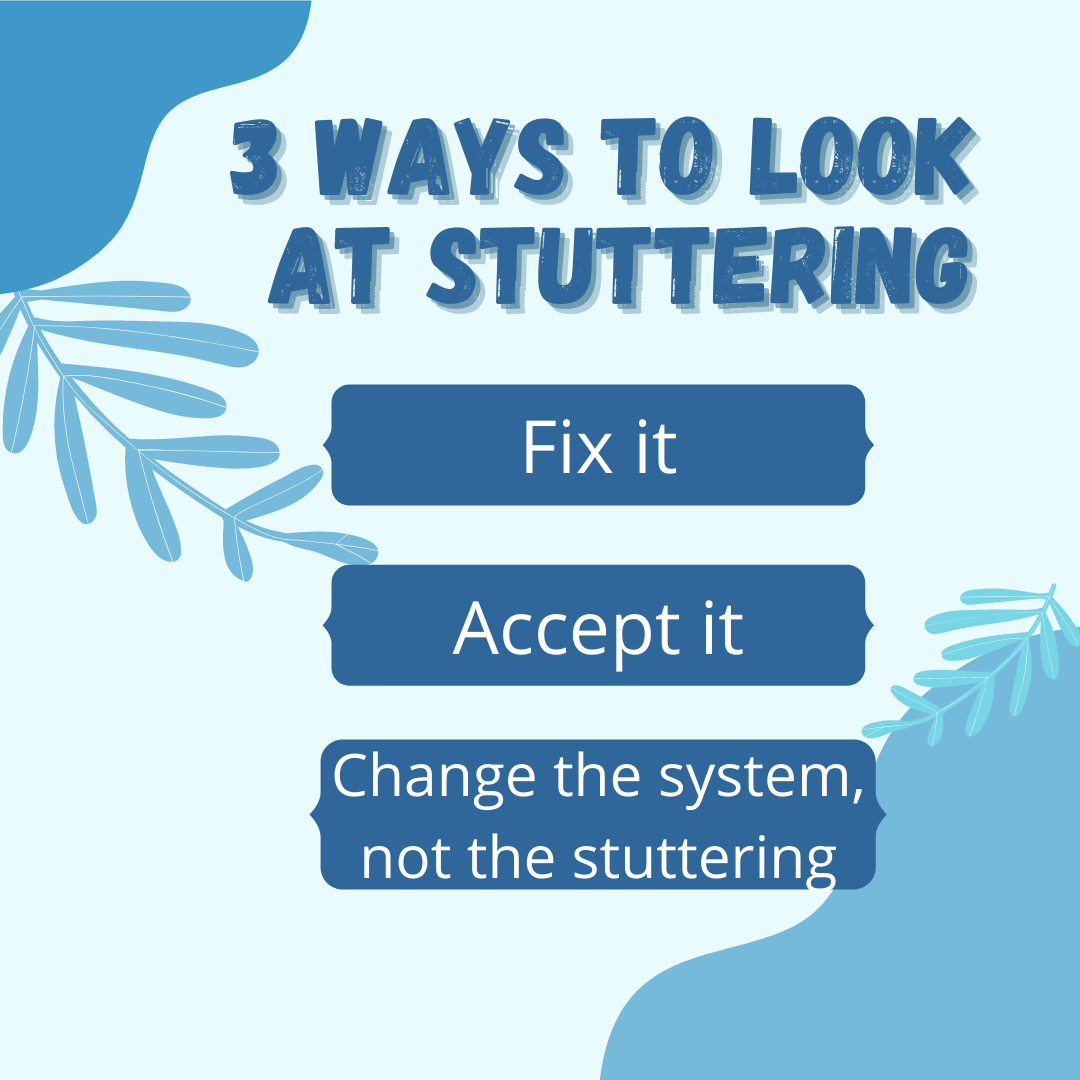A Helpful Meditation
February 20, 2022In Honor of John Harrison
March 3, 2022 There are different ways of looking at stuttering.
There are different ways of looking at stuttering.
Some people see stuttering as problem that has to be fixed.
From this point of view, a person who stutters should have one goal – to be fluent.
If you’re a person who stutters, you are looking for fluency and trying to avoid stuttering at all cost. Your goal is to try to be fluent all of the time.
If you’re a clinician you teach strategies that will keep the person from actually stuttering, even if the speech is produced with effort and sounds strange. You teach strategies that may include avoidance strategies such as omitting difficult sounds or doing something very unnatural, such as pausing after every word, taking special kinds of breathes, or speaking slowly.
Another way of looking at stuttering is as a condition that can’t or shouldn’t be changed.
This point of view believes that people who stutter should learn to not let their difficulty speaking affect the quality of life. In fact, they should take pride in stuttering.
If you’re a person who stutters, you might join a stuttering support group that looks at the benefits of stuttering and work at developing a persona as a person who likes to stutter, seeing what you have learned from the experience. You resist any suggestions that would cause you to speak differently. You identify with stuttering and want to hold on to it since it is a part of who you are.
If you’re a clinician, you work on helping clients accept stuttering and find ways to desensitize them to any fear, embarrassment, or shame in stuttering and want them to feel free to stutter openly in their real life situations.
These are the 2 most known perspectives. However, there is another perspective, the one in which I view stuttering. In this perspective stuttering is seen as the normal result of subconsciously using your speech generating system in an unnatural way. This system is dynamic so it is not locked into one way of functioning. Therefore, there are usually variations in how the system is working and more variations can be developed.
If you’re a person who stutters, you want to understand your system and clarify how you are inadvertently mis-using your system. You want to make changes that would make it easier for you to speak. You want to stop looking at stuttering as something awful that happens to you, and instead want to make the speaking experience less problematic.
If you are a clinician, as I am, your goal is to help people speak with ease and comfort. You guide them to make changes that will get their system to function naturally. While fluency is a natural outcome, it is not the goal and stuttering is not viewed as something that is bad. There is acceptance that the brain has developed a less efficient way of working at least some of the time, but the more natural way of speaking can reinforced. Stuttering should not be the focus of attention. Speaking doesn’t take up the concern or attention of the speaker. Instead it becomes a commonplace, thoughtless activity much like sitting, standing, eating and walking.
It is important for people who stutter and clinicians alike to objectively consider the pros and cons of all these perspectives.
The fix-it perspective does help some people to not stutter and inadvertently some may even come to speak naturally. However, for the most part speaking is always work and the speech produced may not sound natural. Stuttering is thought of as bad and fluency as good. Therefore, stuttering may cause the person to feel badly.
The live with it perspective does help people to feel better about themselves and stuttering. In some cases, people who stutter do actually accept stuttering to such a degree that they give up all control. The result being that speaking is no longer a problem. Others continue to stutter and do participate in speaking experiences with a better feeling. However, for many speaking always remains an issue in their life. Sometimes it even causes a conflict between accepting stuttering and naturally wanting to express oneself effortlessly. This can lead to feeling guilty if they are not stuttering.
Those with the system perspective do work at making changes that are not always easy to make. It takes being open minded and leaving the past in the past. It requires courage to think, feel and behave differently. This is a challenge but when it is met the result is speaking like everyone else. Speaking is no longer an issue that takes up thought and energy.



